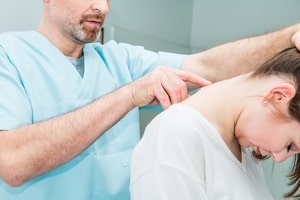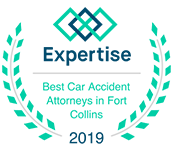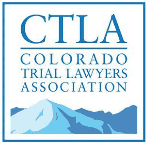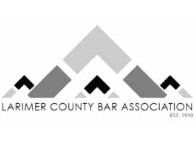Request a Free Consultation | No Upfront FeesSe Habla Español
970-225-2190 |
1-800-664-3151
Recent Blog Posts
Is Stem Cell Infusion Possible Treatment for Spinal Cord Injuries?
Spinal cord injuries are one of the most catastrophic injuries a victim can suffer, significantly impacting their quality of life. The spinal cord is the body’s message center, responsible for sending messages from the victim’s brain to other parts of the body. If there is an injury to the spinal cord, this can stop the messages from being delivered, causing great physical limitations for the victim. Up until recently, there have been limited treatment options for victims. There may be new hope, however, with early research finding that stem cell infusions may help victims regain lost sensation and movement.
The study was conducted by Yale School of Medicine in New Haven, Conn. The researchers took mesenchymal stem cells from the 13 study participants’ own bone marrow and multiplied them in the lab. The stem cells were then intravenously infused back into the participants at approximately 40 days after they had sustained their injuries.
How Dangerous Is Daylight Savings Time for Drivers?

It has been several weeks since we set our clocks one hour ahead for Daylight Savings Time (DST). While many Illinois residents are enjoying that extra hour of daylight each day, many may also have felt tired after the change due to the havoc “springing forward” does to the body’s internal clock. Multiple studies have shown that this fatigue is responsible for an increase in motor vehicle accidents for the first week or two after the change. One major study found that fatal crashes increased by almost 10 percent due to the loss of an hour’s sleep. According to one of that study’s co-authors, moving the clocks ahead causes people to go through a process similar to jet lag. While this fatigue is more severe the first couple of days following the change, some people are affected by it for up to two weeks.
March Is Brain Injury Awareness Month

National statistics provided by the Centers for Disease Control and Prevention (CDC) show that traumatic brain injuries (TBI) have reached nearly epidemic proportions. According to the CDC, more than 50,000 people die every year from causes associated with TBI. Almost 2.2 million people are treated at emergency rooms for an injury to their brain, and approximately 280,000 people end up hospitalized because of serious TBI. Many of these injuries are the result of accidents caused by the negligence or recklessness of another party.
These statistics do not include people who develop a concussion from their head injuries but do not seek treatment, or, if they did see a medical professional, the TBI was a secondary diagnosis. If all those victims were included, then the CDC puts the number of people in this country who sustain brain injuries every year at over 3 million.
Will OSHA COVID-19 Employer Guidelines Soon Become Enforceable?
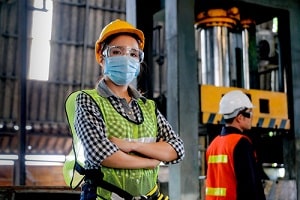
Shortly after taking office in January, President Joe Biden signed a series of executive orders that addressed COVID-19 worker protections. According to information provided on the Occupational Safety and Health Administration (OSHA) website, the protocols outlined in the executive orders are currently just guidelines; however, it is anticipated that these guidelines will soon become enforceable, thus affecting Colorado employers.
One of the directives given by President Biden to OSHA was to come up with the COVID-19 guidelines and another was to possibly implement emergency temporary standards to address the hazards that workers face in the workplace if needed. If these guidelines become standards, they will then be enforceable. The deadline set in the executive order to make these changes is March 15, 2021.
How Can I Get Compensation for Colorado Construction Site Injuries?

Construction workers are exposed to a wide variety of safety risks on a regular basis due to the nature of their work. As a result, they often suffer injuries related to falls from scaffolding, machinery and vehicle accidents, electrical and fire hazards, exposure to dangerous substances, and physical exertion. Fortunately, construction workers who are injured on the job in Colorado often have multiple options for recovering compensation, and with the guidance of an experienced attorney, they can decide on the best course of action.
Construction Employee Workers’ Compensation Claims
In Colorado, construction workers who are classified as employees are typically able to file a claim with their employer seeking workers’ compensation benefits for work-related injuries. Workers’ compensation is often available regardless of who is at fault for the injuries, and if liability lies with either the employer or the injured employee, it is usually the best option for obtaining financial assistance for the employee’s injuries.
How Does Improperly Loaded Cargo Cause a Colorado Truck Accident?
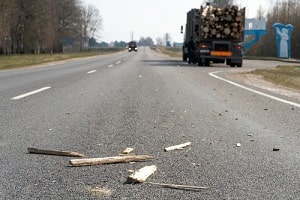
Safely transporting semi-truck cargo can be a precarious balancing act, especially throughout the varied terrain of the Colorado Front Range. A truck driver must be skilled at maneuvering their vehicle’s large size and weight as they accelerate and decelerate, navigate turns and curves, and traverse inclines of varying grades. However, everyone who is involved with loading and unloading truck cargo also must take care to do so properly to make sure that the truck is ready for the road. When cargo is loaded or secured improperly, serious truck accidents can occur.
Accidents Involving Truck Cargo
In most cases, when a truck’s cargo contributes to an accident, it is due to one of the following reasons:
-
Improper weight distribution - In some cases, the crew responsible for loading or unloading a truck fails to maintain an appropriate distribution of weight across the truck’s axles. A semi-truck that is front- or back-heavy, or one in which the cargo is disproportionately heavier on one side, is much more difficult to control even under ideal driving conditions. A driver may find it difficult to bring the truck to a stop when necessary or to keep it upright when turning or making adjustments.
How Can a Colorado Car Accident Affect Your Mental Health?

For some car accident victims, physical injuries and their effects are just the beginning of the many challenges they will face in the weeks and months following the incident. Mental health struggles are another common outcome of a car crash, and they can be just as costly as physical injuries from a financial standpoint and when it comes to their overall impact on the victim’s life. Fortunately, it is possible to pursue compensation for damages related to mental health as part of a personal injury claim.
Mental Health and Car Crashes
A car accident can impact a person’s mental health in a variety of ways. Some of the most common include:
-
Posttraumatic stress - Being in a serious car accident can be an incredibly distressing experience, and after the crash, a person may find themself struggling with recurring nightmares, panic attacks, or a fear of driving or even traveling in a motor vehicle. Some studies have found that as many as 40 percent of car crash victims exhibit signs of posttraumatic stress disorder (PTSD).
Can Colorado Workers’ Comp Be Granted for a Repetitive Stress Injury?

When you think of a work-related injury, the situations that first come to mind are likely immediate injuries resulting from a one-time accident such as a fall, a fire, or an incident involving machinery or equipment. Certainly, these types of injuries are covered under Colorado workers’ compensation law, but they are not the only injuries for which an employee may be granted benefits. Colorado workers can also file a claim if they have developed a repetitive stress injury through the course of their work.
What Is a Repetitive Stress Injury?
Commonly abbreviated as RSI, repetitive stress or repetitive strain injury is one that accumulates over an extended period of time due to the repetition of similar physical movements. RSIs are common in occupations that involve physical exertion, such as in the construction and manufacturing industries, as well as occupations that require the employee to maintain a posture for a long period of time, such as a truck driver or even an office worker. Examples of repetitive stress injuries include:
Common Examples of Negligence in Nighttime Car Accidents

According to the Colorado Department of Transportation (CDOT), more than 25 percent of all car accidents in the state over the past 15 years have occurred during dawn, dusk, or the dark hours of the night. Nighttime driving comes with a variety of additional hazards when compared to driving during the day, and many of these are related to the negligent or reckless actions of drivers that threaten the safety of others on the road. If you have been injured in a nighttime vehicle crash, look for evidence of negligence that can justify your case for compensation.
What Causes Car Crashes at Night?
Some contributing factors in nighttime accidents are related to the environment, while others are related to driver behaviors that tend to be more common in the late-night hours. Examples include:
Resolving Impairment Rating Disputes in a Colorado Workers’ Comp Case
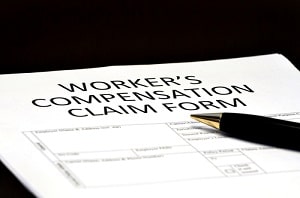
Work-related injuries often have long-term effects that go far beyond the initial costs of medical treatment, and in many cases, employees are left with permanent disabilities that limit their income and earning capacity. Colorado workers’ compensation includes permanent disability benefits in these cases, with the amount determined based on your previous income and an impairment rating assigned by your treating doctor. Because this impairment rating is so important for determining permanent disability benefits, it is crucial to ensure that your doctor’s assessment is accurate. If you disagree with the doctor’s recommended rating, you have the option to dispute it, and an attorney can help you do so.
How Are Impairment Ratings Assigned in Colorado?
When you are injured at work in Colorado, you will usually have to choose a doctor from a list provided by your employer. This doctor is responsible for assessing your condition and recommending and providing treatment, and as time passes, your doctor will also assess the progress of your recovery. When you reach a point at which your doctor no longer expects your condition to improve, he or she will report that you have reached Maximum Medical Improvement (MMI) and give you an impairment rating based on any remaining physical and mental limitations.

970-225-2190 | 1-800-664-3151
1403 W. 29th St.,
Loveland, Colorado 80538
Greeley:
3835 W. 10th Street, Unit 100,
Greeley, Colorado 80634|
970-460-2220
Longmont:
2204 18th Ave, Suite 123,
Longmont, Colorado 80501|
720-575-0509
Boulder:
4450 Arapahoe Avenue, Suite 100,
Boulder, Colorado 80303|
303-997-2018
Ft. Collins:
123 North College Ave., Suite 160,
Fort Collins, CO 80524|
970-225-2190
Cheyenne:
109 E. 17th St., Suite #6148,
Cheyenne, WY 82001|
307-227-4051 (By Appointment Only)


